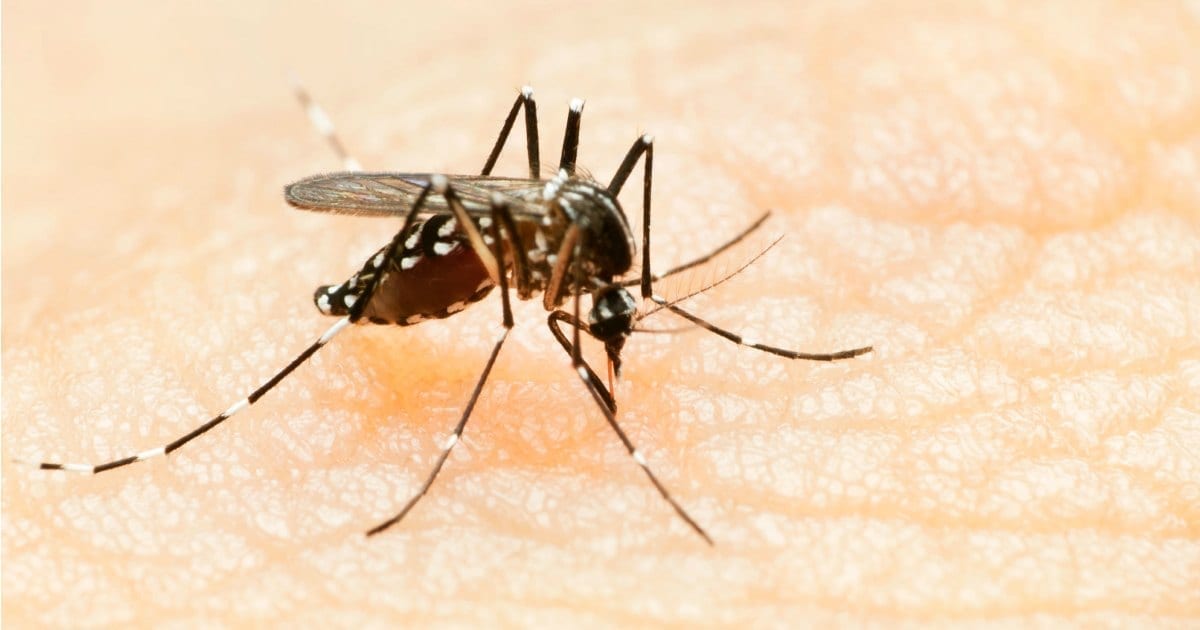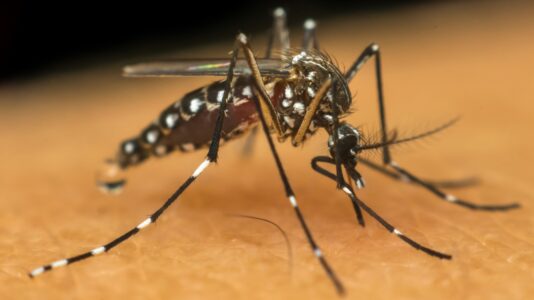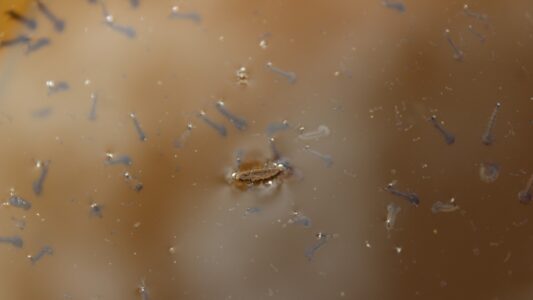Curacao is one of the most favorite vacation destinations for the Dutch. But unfortunately, the Caribbean islands also have an enemy of tourists: the mosquito. Curacao also has mosquitoes, but don’t let that stop you from vacationing in Curacao!
What mosquitoes on Curacao
If you really want to know all the scientific details, you should read Wikipedia on what kinds of mosquitoes there are in Curacao. But for most people, it doesn’t matter that there are lots of species of mosquitoes, most of which don’t even sting (bite). Let’s be especially concerned about the mosquitoes that do sting, especially the Aedes Aegypti (Yellow Fever Mosquito) and the Aedes Albopictus (Asian Tiger Mosquito) that are responsible for spreading viruses such as Zika, Chikungunya and Dengue (dengue fever).
How do you recognize a “dengue mosquito”?
You can recognize the mosquitoes that can cause dengue by the bright black and white stripes on their legs.
In doing so, you have to be especially careful of the females because they can transmit the virus. Females can be identified by hairy antennae on the head; males have feathery antennae on the head.
Then again, it doesn’t really matter that much: of course, you don’t want to be stung (bitten) by any mosquito. Basically, any mosquito bite will leave a bump and cause irritation anyway.
Zika and Chikungunya on Curacao
In 2014/2015, South America and thus Curacao was under the spell of Chikungunya. A year later (winter 2015/2016), it was for the Zika virus. Zika, Chikungunya and Dengue are spread by the same mosquito, the Tiger mosquito. Fortunately, Chikungunya (since the end of 2016) and Zika (since 2019) are virtually no longer an issue in Curacao, although some infections of both viruses were detected in early 2024.
Dengue on Curacao
Dengue (or: dengue fever) is unfortunately a somewhat more persistent problem. This is actually always present to a greater or lesser extent in Curacao. There was an outbreak in 2010/2011 and again in 2023/2024, a resurgence of Dengue was noticeable in Curacao. Necessary tourists have also contracted Dengue. At the end of March/beginning of April 2024, there will be -slightly- some communication from the government about dengue in Curacao. There is no reason to panic, but an outbreak is underway.
More about Dengue on Curacao »
Mosquitoes on Curacao love tourists!
Don’t be fooled by locals who claim the mosquito is not there. Don’t be fooled by locals who claim the mosquito is not there. The mosquito is always there in Curacao, just some times more often and other times less. In addition, because of the sunshine, the locals will have thicker skin which the mosquitoes do not like. In addition, because of the sunshine, the locals will have thicker skin which the mosquitoes do not like. And the locals’ immune system is used to the mosquito on Curacao, so they no longer get itchy mosquito bumps when they are stung.
What does a mosquito on Curacao LOVE
What a mosquito likes, you as a human should avoid as much as possible:
- standing water
- heat
- dark places
- windy
- high humidity
What does a mosquito in Curacao HATE
So these are things that can help keep the mosquitoes away from you:
- wind/travel
- colder environment
- smoke
- DEET
- covering clothes
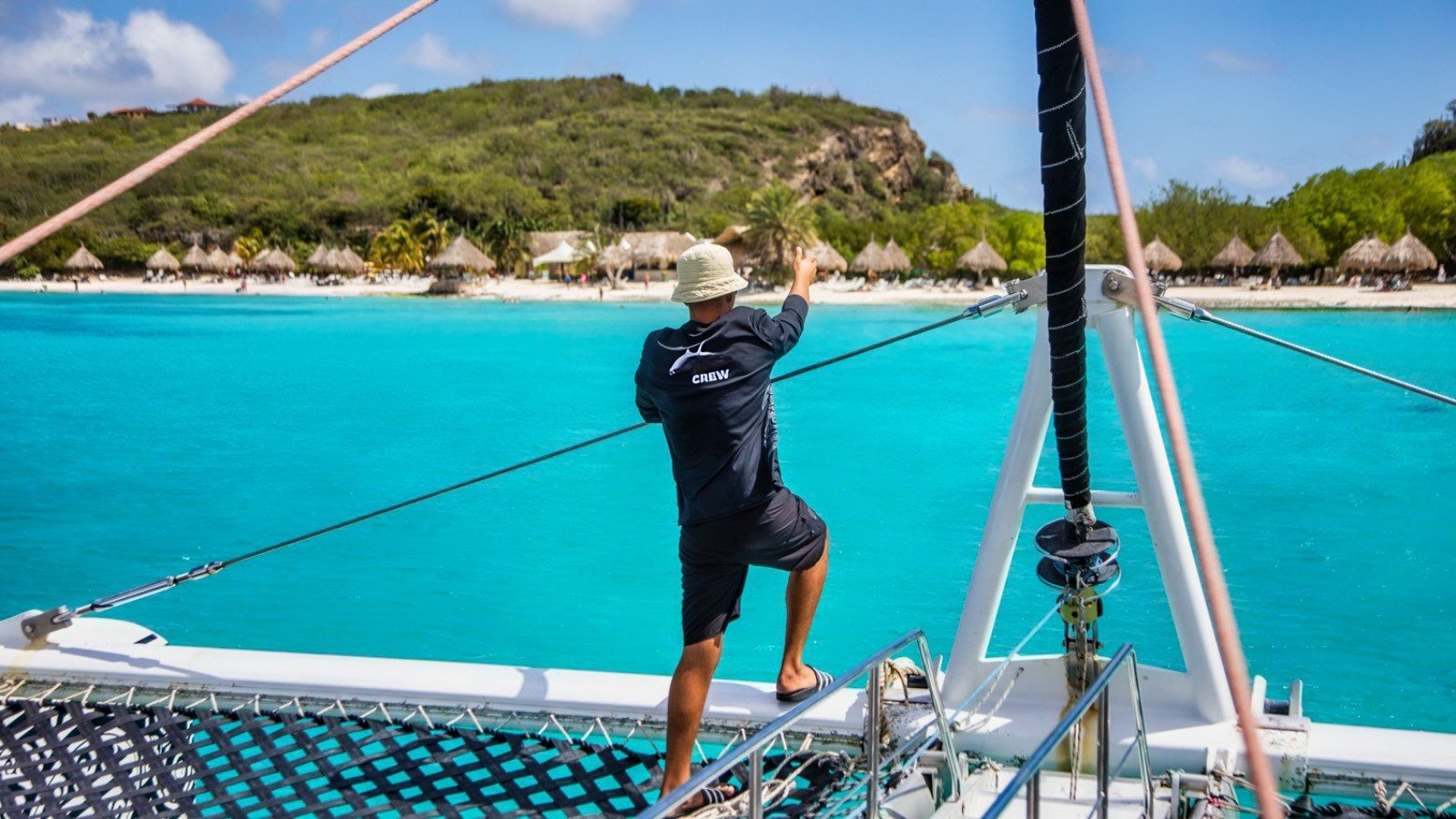
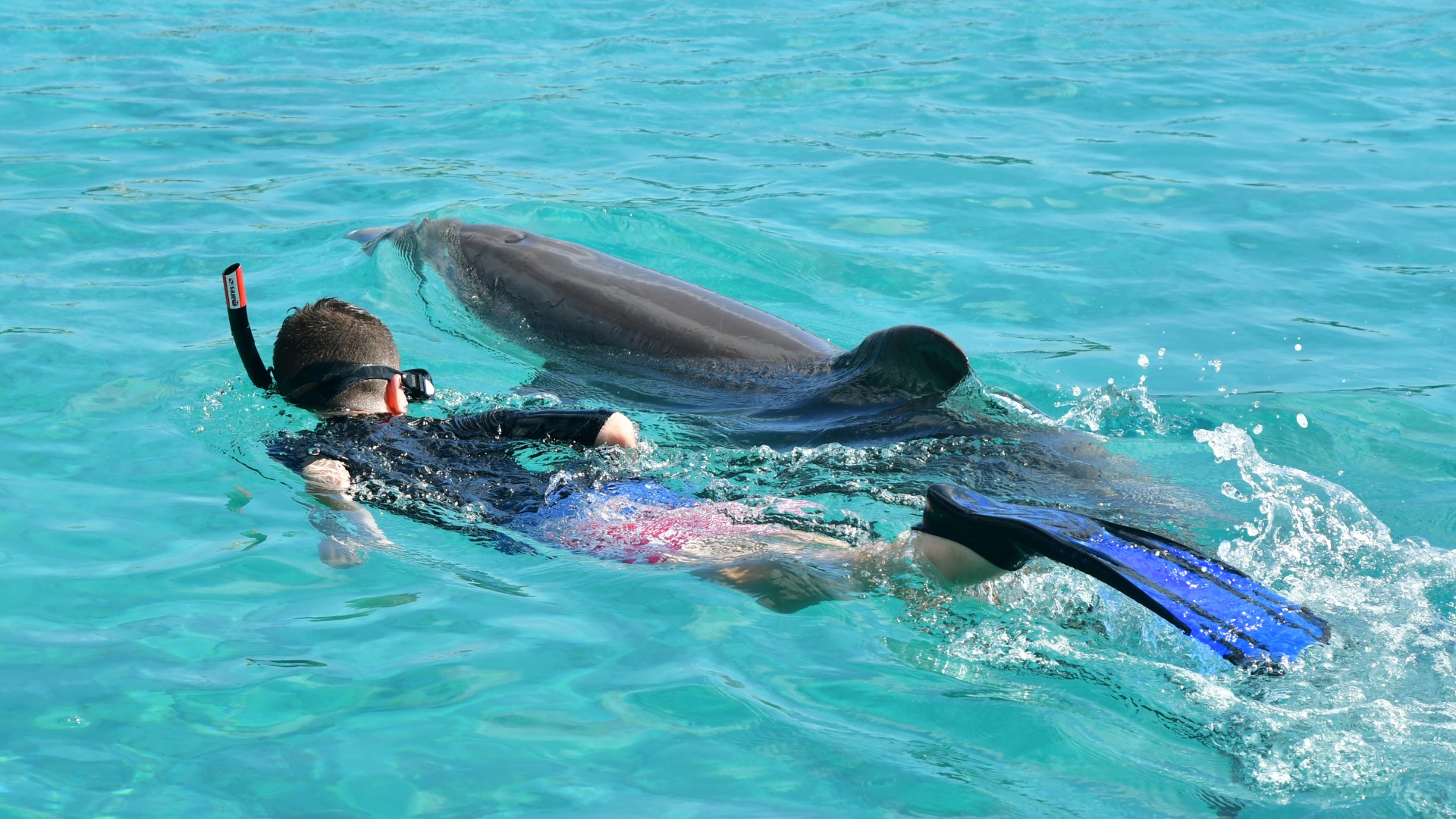
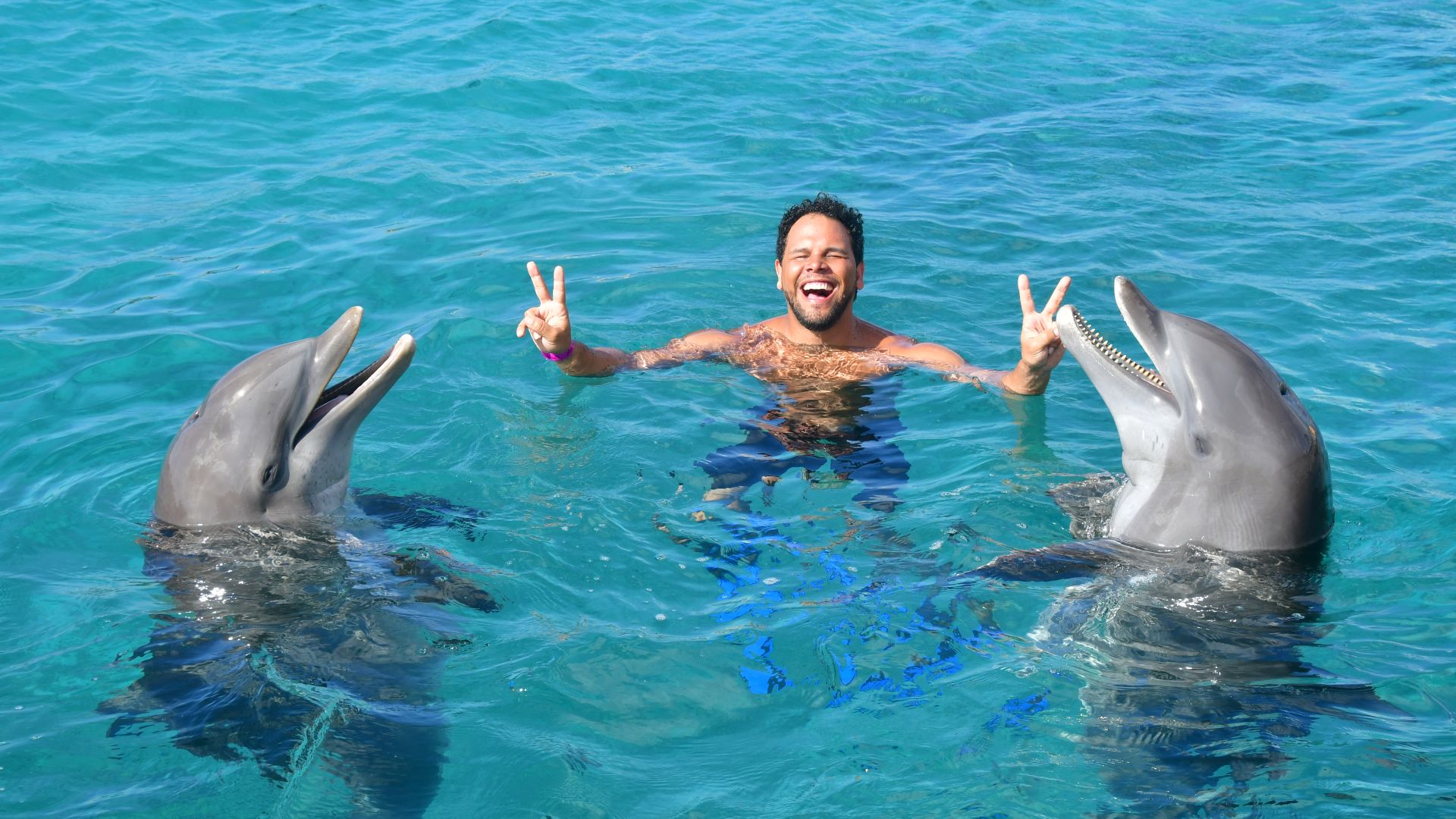
Most popular dolphin tour!
Dolphin Swim
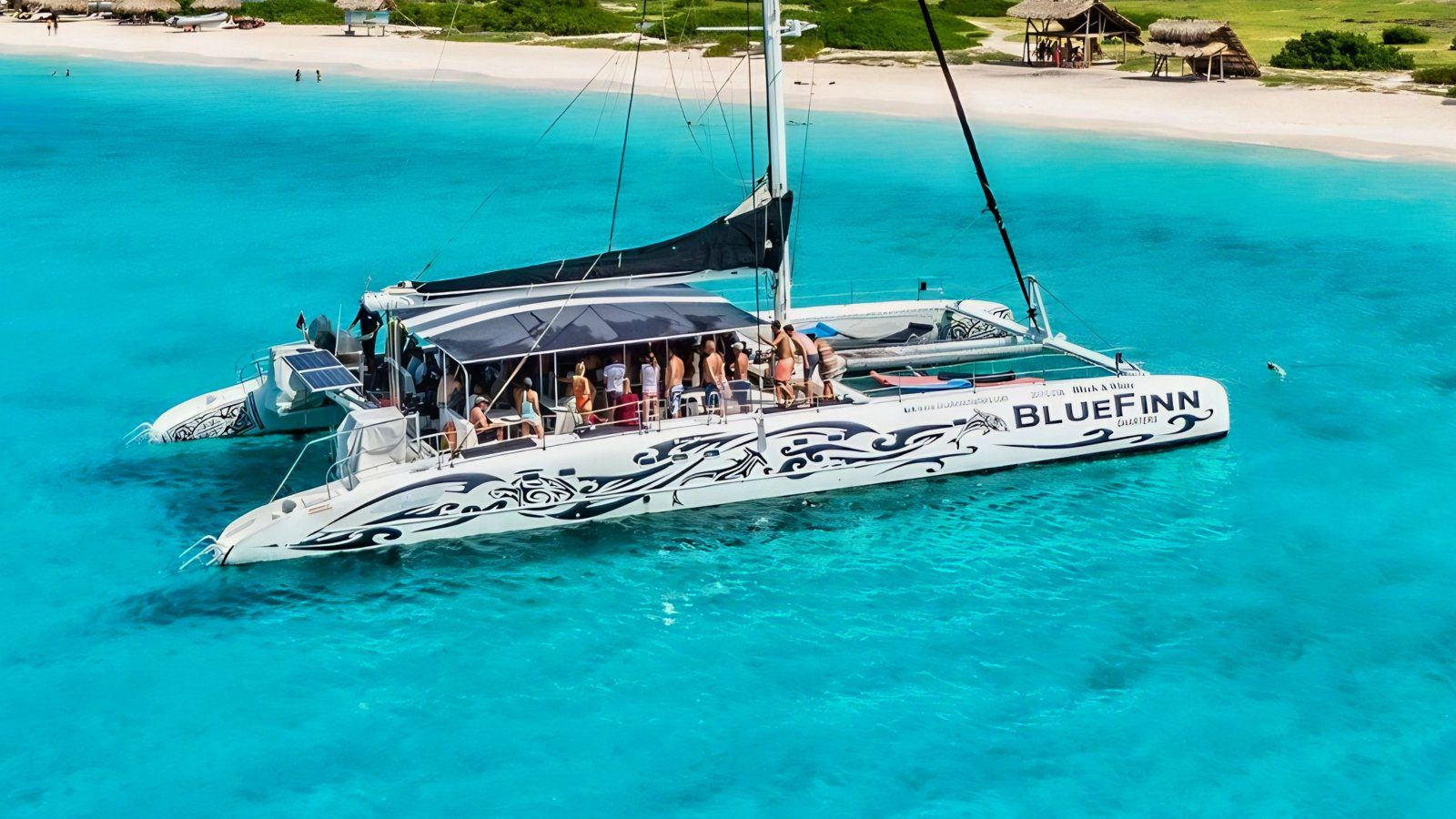
Most popular Klein Curacao
Klein Curacao | BlueFinn Charters
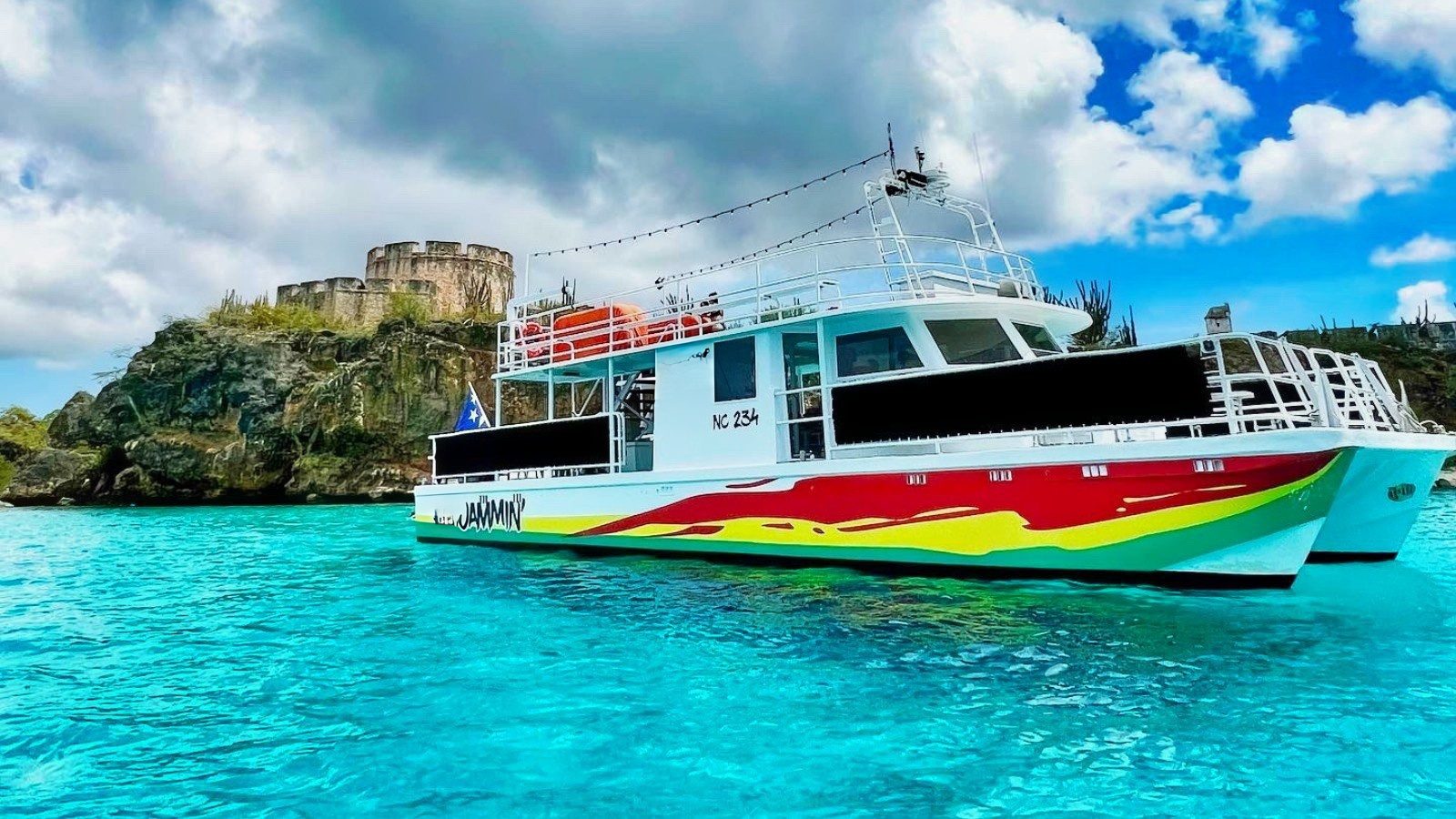
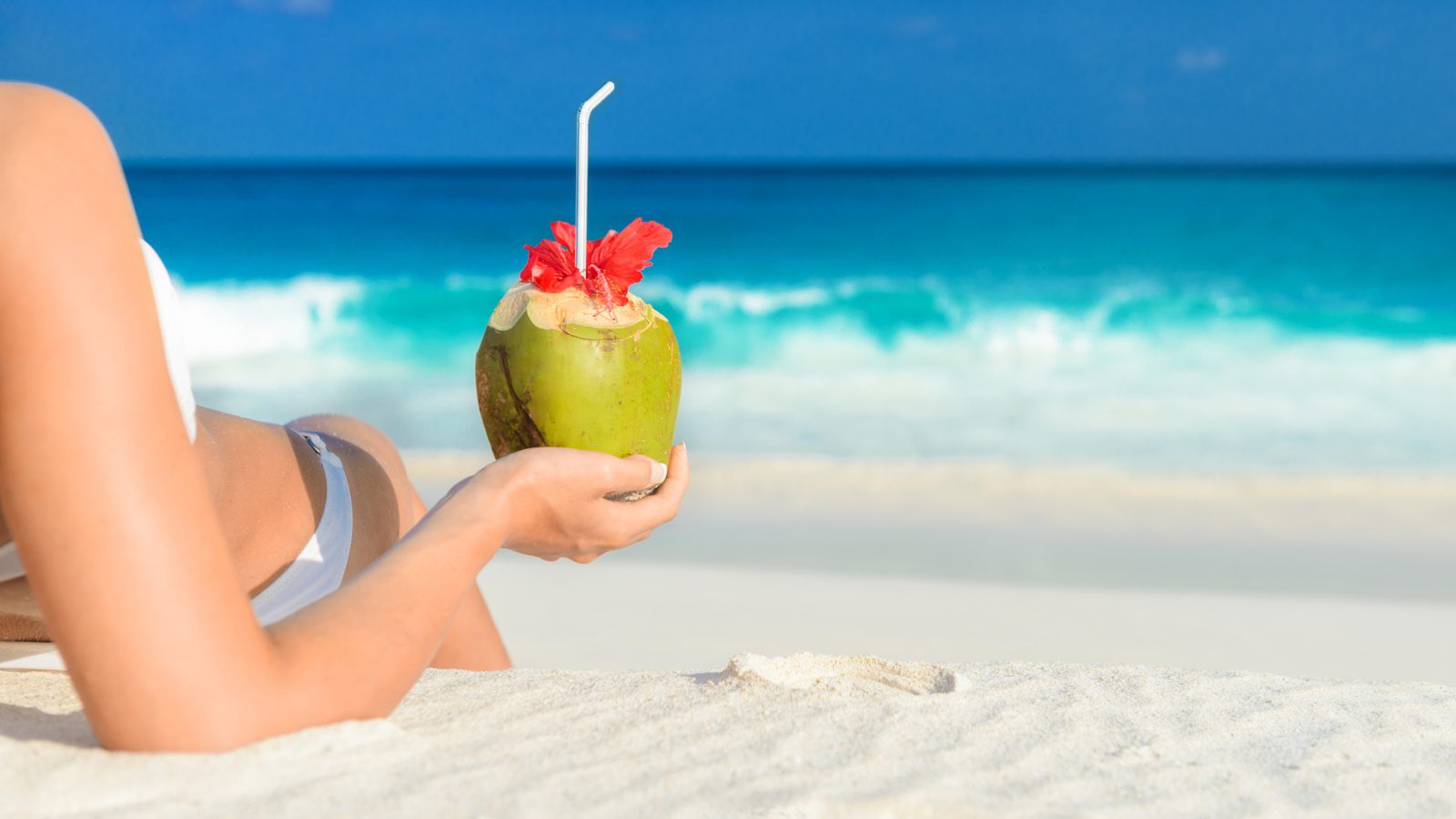
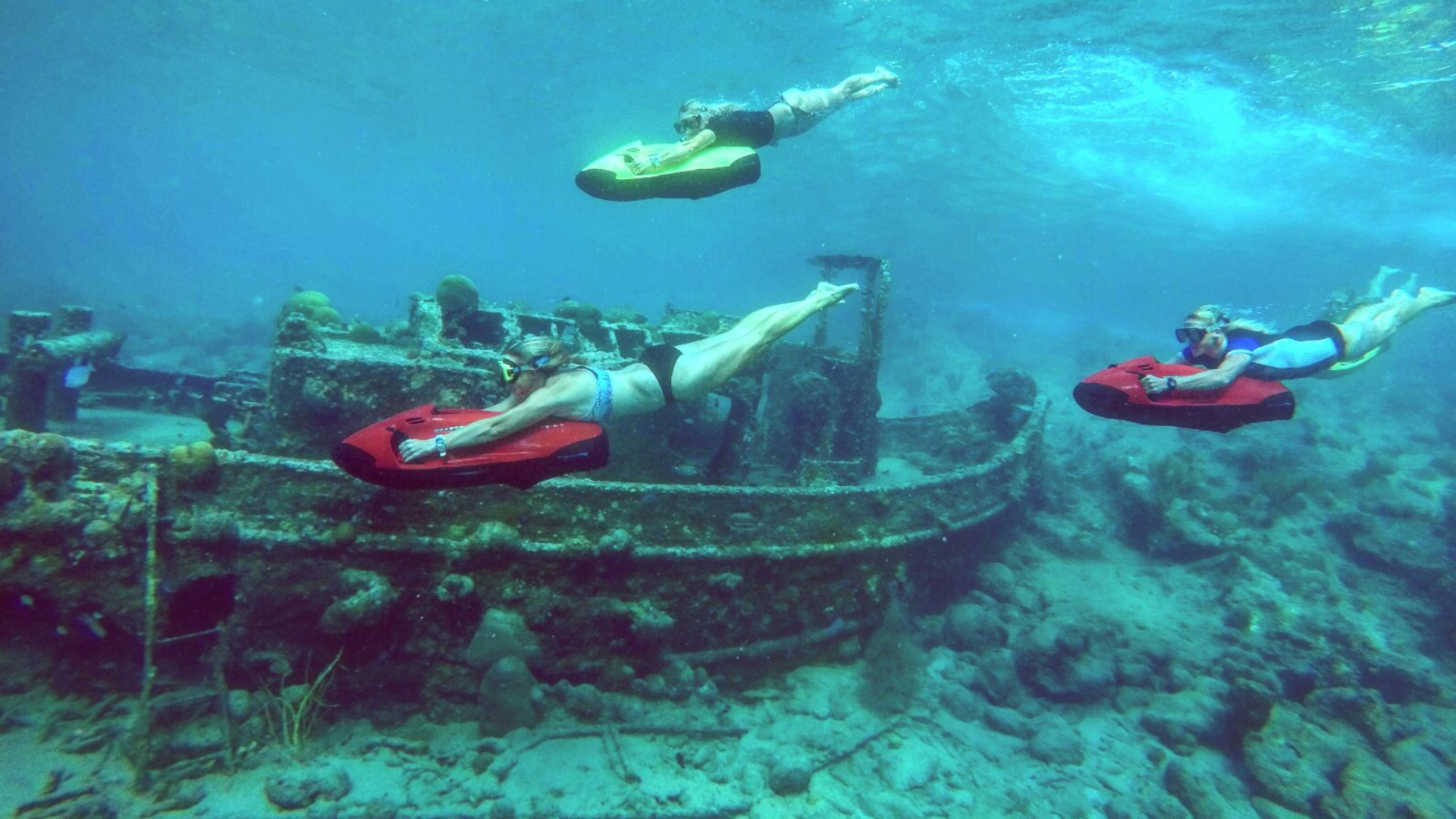
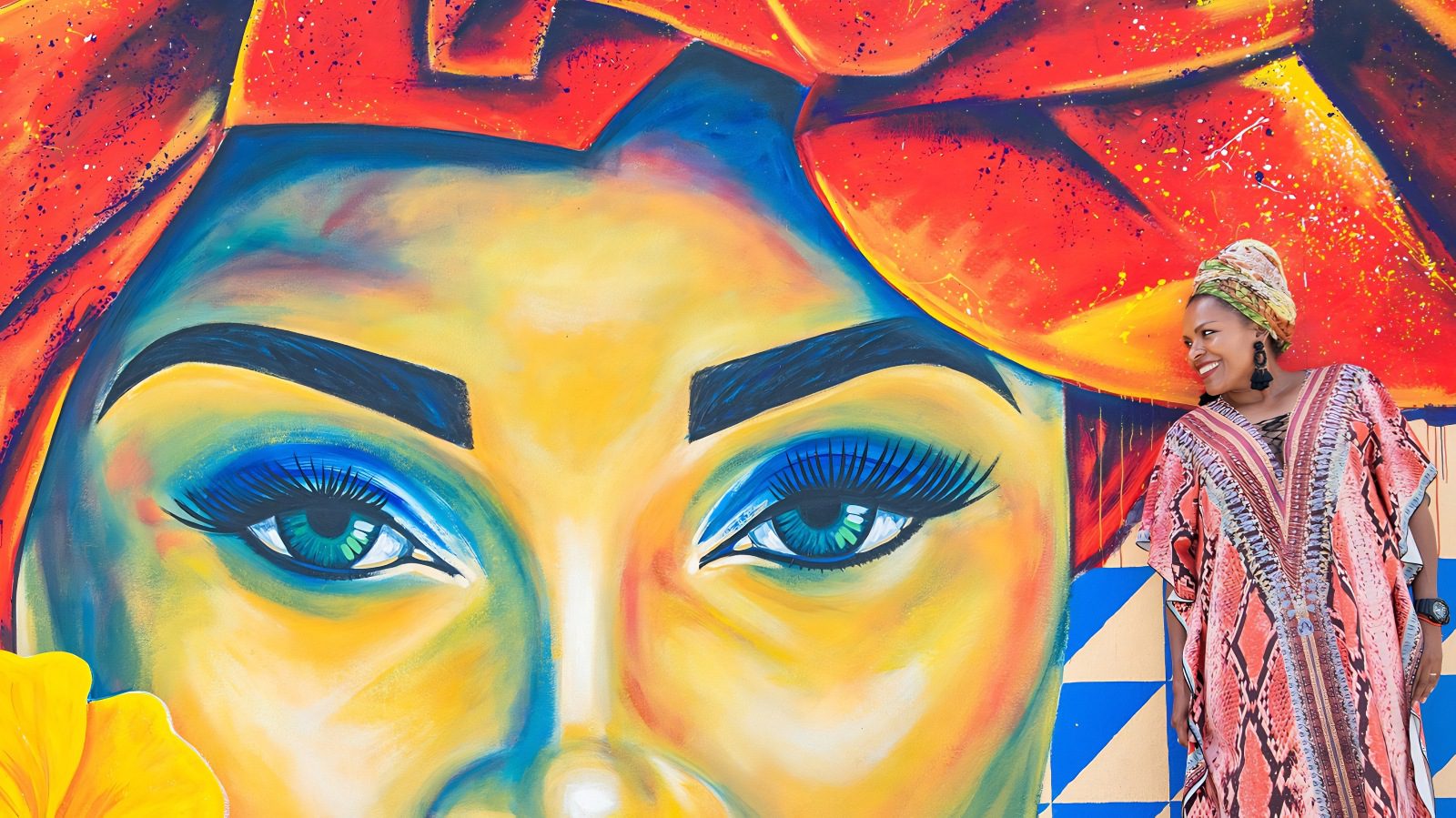
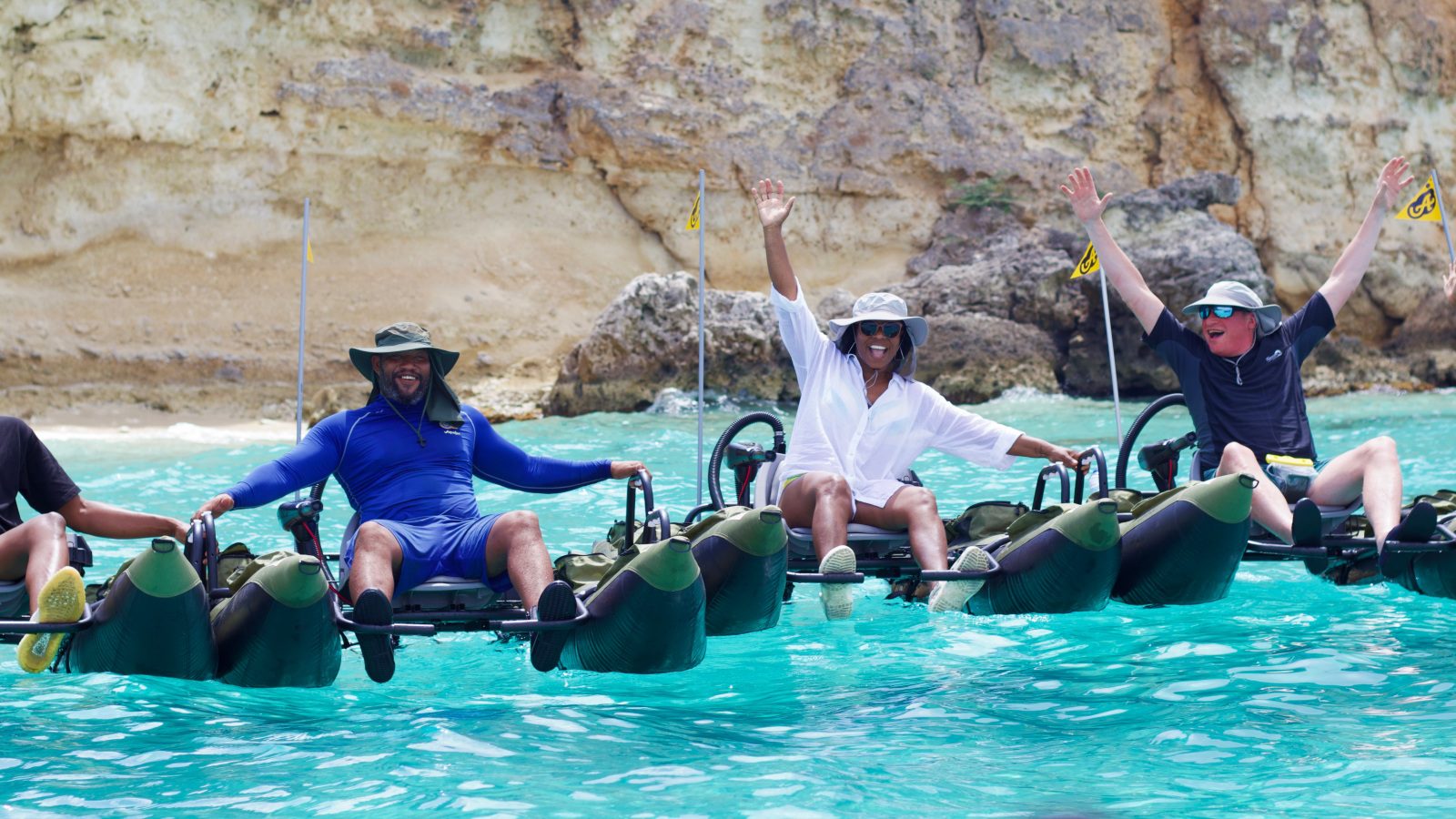
When do you suffer from mosquitoes in Curacao?
We regularly get the question “When are there no mosquitoes in Curacao?“. Unfortunately, there are always mosquitoes in Curacao. But it can vary a bit by time of year whether there are many or few mosquitoes. Global indication:
– In the spring (April/May) there is usually a little more wind on Curacao so you will have a little less trouble with mosquitoes.
– In the fall and early winter (September to December/January) is the rainy season on Curacao, then you can expect more trouble from mosquitoes because in many places there will be puddles of water in which mosquitoes can lay their eggs.
– The rest of the year is “average.” Depending on where you are, you will be a little more or a little less bothered by mosquitoes. But it won’t be a constant thing, or that you just don’t notice it at all.
In terms of time of day, you should be especially alert to mosquitoes during the day, especially when the “dengue mosquito” is active. This is not to say that you cannot contract dengue infection in the evening and night, but the chances are less than during the day.
Mosquito protection on Curacao
Even though as a tourist in Curacao you are a favorite target for the mosquito, you can protect yourself quite nicely and thereby greatly reduce the chances of getting stung.
Apply DEET
DEET is available in three varieties: a lotion with 50% DEET, a spray with 40% DEET and gel with 30% DEET. If you have a remedy with a percentage of DEET lower than 30%, it only protects for a short time and is really not suitable for Curacao. If you have a remedy with a percentage of DEET of more than 50%, it has no extra value: you actually just smear more poison on your body without any extra (long) help.
DEET tips
- One package of DEET is enough for one person with normal daily use for 2 to 3 weeks.
- DEET can be a pretty nasty stuff. If you are using it for the very first time, apply a small amount first to see how your skin reacts to it.
- Do not apply DEET on a wound or if your skin is irritated because you have been in the sun too long. Avoid contact with eyes and lips. If DEET does accidentally get on sensitive skin, rinse with water as soon as possible.
- The effect of DEET can be adversely affected by strong body odor such as sweat
- Like sunscreen, you should reapply with DEET after swimming
- Important! The correct order: Apply sunscreen first and let it soak in. Only then apply DEET to your body. If you do this the other way around, the DEET has no effect at all.
- In children, use up to 30% DEET. Ideal for children is an anti-mosquito bracelet.
Sleep under a mosquito net
A mosquito net can make you feel safe to sleep peacefully while mosquitoes try to get to you. If you want to buy a mosquito net you have several options Do you want a mosquito net for single or double bed? Want a compact travel mosquito net? Impregnated with anti-insect stuff or not? So before you order a mosquito net, find out what is convenient for your accommodation in Curacao. Tip: Also consider how you will hang the mosquito net, take some practical items with you.
Turn on the air conditioning
A mosquito does not like wind, cold and dry air. How nice that you can combine this by turning on the air conditioner! Tip: On Curacao, use the air conditioner only when really necessary: electricity is expensive on Curacao and an air conditioner consumes a lot of power. Many accommodations will charge use of air conditioning extra, usually between US$ 6 and US$11 per night.
Avoid standing water
You too, as a tourist, can help keep the nuisance of mosquitoes on Curacao as minimal as possible. If you see water standing in something (prolonged), you can signal or resolve it. E.g. at your accommodation an empty flowerpot just put it upside down for a while. Or lay a car tire flat on the ground that prevents water from standing in it. In any case, try to remove the water from it for now, and if possible leave it in such a way that water cannot remain in it again. Unfortunately, on Curacao, many residents also use the garden as storage for things they can “probably use someday,” which of course does not help prevent the breeding ground of mosquitoes.
What’s new here in spring 2024: during the dengue outbreak in Curacao, it was found for the first time that the mosquito that spreads dengue also lays eggs is dirty water. Until then, the eggs were found only in stagnant clean water, but in early 2024 they were also found in cesspools in Curacao, among other places.
Taking vitamin B?
Many people claim it helps to start taking Vitamin B beforehand. Of course, it is difficult to test for yourself whether it works or not, but so far it has not been proven with scientific research that taking Vitamin B (B1) helps. Indeed, Bart Knols, Holland’s mosquito expert, says it is certain that swallowing Vitamin B does not help. But despite the lack of (scientific) evidence, there are many people who say they definitely benefit from it in the fight against mosquitoes. So maybe it’s worth a try?
Vaccination against dengue
It is possible to be vaccinated against dengue. This (new) dengue vaccination is especially good protection against becoming seriously ill a.g.v. dengue and prevents about 80% of dengue cases. The vaccination consists of two shots, 3 months apart. The vaccine is still fairly new. While it has been extensively tested, little is known about long-term effects.
But this vaccination is not available to just anyone:
- Because a second or third dengue infection can make you quite ill, the vaccination is especially important for people who have already had dengue at least a year ago.
- If you haven’t had dengue before, the vaccination is only for travelers who will spend at least 4 weeks in a high-risk area, or frequent shorter stays.
- For the vaccine to work, it is -of course…- crucial that you can get both shots at 3-month intervals. Because it may also be some time before you can come in for the first shot, we recommend you find out about this at least 4 months before you leave.
- The vaccine is not given to children under 4 years of age, pregnant or breastfeeding women, or persons with immune disorders (possibly due to medication).
How can you get a vaccination against dengue?
Contact your local GGD about 4 months before departure for options.
What does a dengue vaccination cost?
Rates are different for each GGD location, where there can be a substantial difference between them (why we don’t know either). If we quickly check some GGD locations on their rates for a dengue vaccination, it ranges from just under US$ 100 to US$ 150, but there may still be GGD locations where a dengue vaccination is cheaper or more expensive.
View rates by GGD location »
Anti-mosquito products on Curacao
You can buy various items against mosquitoes in Curacao’s supermarkets:
- Mosquito racket: A small model tennis racket with power on the wires (battery or rechargeable). For a few Antillean Guilders on sale in almost any supermarket or mini-market. A good remedy to take a walk around the room and kill any mosquitoes present.
- smoke spiral: Mosquitoes in Curacao don’t like smoke. In Curacao, you can buy an anti-mosquito smoke coil in any supermarket. Put the spiral on its leg, light it and for about three hours the spiral stands quietly smoking, similar to incense. You can smell the smoke a little, but it is certainly not bothersome. A great way to keep mosquitoes away from the table while eating (outside, of course!). Be careful when unpacking the anti-mosquito smoke spiral: they are often packed twisted together. Unpack carefully because they break easily.
- OFF! anti-mosquito spray: OFF! is the most popular anti-mosquito spray on Curacao. You can buy it in any supermarket or botika (= pharmacy), but it is expensive. Because of the DEET, OFF! is not of unlimited use. Many people inject themselves with plenty of it daily. Don’t do that for too long; it may cause irritation to your skin. OFF! comes in green and orange versions. In some people, one version helps against the mosquito better than the other. We regularly get questions about this, but OFF is not for sale in the Netherlands. Note: Be careful when buying OFF! or any other anti-mosquito remedy in Curacao. Besides being hugely pricey, there are varieties that have a limited shelf life. If it is past the date then the drug is less effective.

